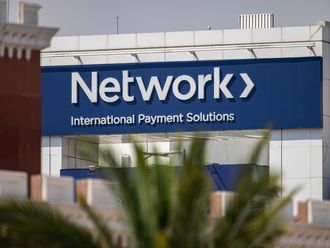London: Royal Bank of Scotland (RBS) unveiled the biggest loss in British corporate history on Monday, overshadowing a second government bailout for the sector and sending its shares reeling to a 23-year low.
RBS said it would report a 2008 loss of up to £28 billion (Dh149.31 billion), driven largely by a goodwill impairment charge of £15 to £20 billion related to its acquisition of parts of Dutch rival ABN Amro in 2007. Excluding goodwill impairment, the bank said in a statement it expects a full-year loss of £7 to £8 billion.
The statement came as the UK government sought to counter a looming recession by unveiling a new rescue package for banks that will see its stake in RBS rise to nearly 70 per cent from 58 per cent.
The latest bailout failed to support shares in Lloyds Banking Group (LBG), however, they made their debut on the London Stock Exchange. Traders said the package had been overshadowed by fears that the massive losses at RBS would set a precedent for the rest of the sector.
LBG, created by Lloyds TSB's rescue of leading mortgage lender HBOS, said yesterday Lloyds had traded satisfactorily and that HBOS' trading position was unchanged since their last update in December.
Shares in LBG initially rose more than seven per cent following the trading update and the government's latest bid to bolster bank capital and lending, but the stock was down nine per cent at 89.5 pence by 10.55 GMT.
David Buik, partner at BGC Partners, said there was a certain "inevitability" to the LBG share price fall. "The fact that in terms of ownership they have 28 per cent of the mortgage market and house prices are falling makes them vulnerable," he said.
LBG said its core tier one capital ratio - a key measure of its capital strength - was within its target range of between six and seven per cent at the end of last year. The tier one ratio is set to rise by about 0.35 percentage points as a result of plans to swap £2 billion of its bonds for new tier one capital instruments, the bank added.
Collins Stewart analysts said the bank's capital ratios already included "materially more writedowns" than peers, but that the risk of further capital injections in the sector remained.










